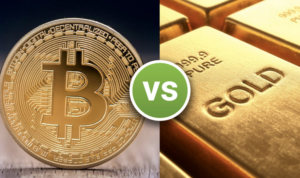Not a single person in the modern world has avoided hearing about Bitcoin and the rise of cryptocurrencies. What started as a niche digital experiment has skyrocketed into a global phenomenon. With individuals, institutions, and even governments investing in Bitcoin, it’s clear that the landscape of global finance is changing rapidly. But a provocative question has emerged: Could Bitcoin become the world’s top reserve asset? Could it truly live up to its reputation as “digital gold”?
The Growing Popularity of Bitcoin as a Strategic Reserve Asset
Bitcoin’s popularity is undeniable. From retail investors to major financial institutions, people are including Bitcoin in their portfolios as a means of storing value. What makes this development even more compelling is the fact that some forward-thinking governments are also exploring the possibility of adding Bitcoin to their national reserves.
Traditionally, gold has been the go-to asset for wealth preservation across generations. Gold’s scarcity and intrinsic value made it a natural choice for countries looking to secure their financial stability. Now, Bitcoin is being considered in the same light. Like gold, Bitcoin has a finite supply (21 million coins), making it scarce and potentially valuable over time. But unlike gold, Bitcoin is digital, decentralized, and global.

What It Would Take for Bitcoin to Become a Global Reserve Asset
The idea of Bitcoin becoming the world’s No. 1 reserve asset is not entirely out of reach. For Bitcoin to achieve this status, major players in the financial world would need to embrace it as a legitimate reserve asset. Governments, central banks, and multinational corporations would have to treat Bitcoin with the same respect they give to gold and foreign currencies.
It’s not a secret that respectable business leaders and government officials occasionally hint at this idea, suggesting that Bitcoin could one day serve as a global reserve. Public discussions have been gaining momentum, and it’s clear that Bitcoin is no longer just a speculative investment—it’s increasingly seen as a strategic financial tool.
The potential for Bitcoin to become a global reserve asset is particularly attractive because it provides something that traditional assets can’t: decentralization. No government controls Bitcoin, which means it could offer a layer of financial autonomy that isn’t possible with fiat currencies. This makes Bitcoin an attractive option for countries seeking to diversify their reserves and reduce reliance on the global financial system.
The Risks: Volatility and Adoption Challenges
Of course, Bitcoin’s path to becoming a global reserve asset isn’t without obstacles. The primary concern for many is volatility. Bitcoin’s price can swing dramatically in short periods, which makes it a high-risk, high-reward asset. This volatility could deter cautious investors and governments from fully embracing it as a reserve asset. However, Bitcoin’s proponents argue that as adoption grows, its volatility could decrease. As more people, institutions, and nations hold Bitcoin, the market will stabilize, making it a more reliable store of value over time.

Another challenge is adoption. For Bitcoin to become a truly global reserve asset, it needs to be widely accepted by major financial institutions and governments. This process may take time, but it’s not impossible. The more we hear from influential voices in finance and government, the more credible Bitcoin’s role as a reserve asset becomes.
Strategic Investment and the Future of Bitcoin
Despite the risks, Bitcoin presents a strategic investment opportunity. If it continues to grow in both adoption and value, those who hold Bitcoin as a reserve could gain significant financial advantages in the future. In a world where digital currencies are becoming increasingly dominant, holding Bitcoin could provide a unique hedge against economic instability and offer substantial long-term rewards.
For now, Bitcoin is often referred to as “digital gold” because of its scarcity and potential to preserve wealth. But if the momentum continues to build, Bitcoin might one day take the lead as the world’s primary reserve asset. Its decentralized nature, combined with the potential for future growth, makes it an exciting candidate for this role.
